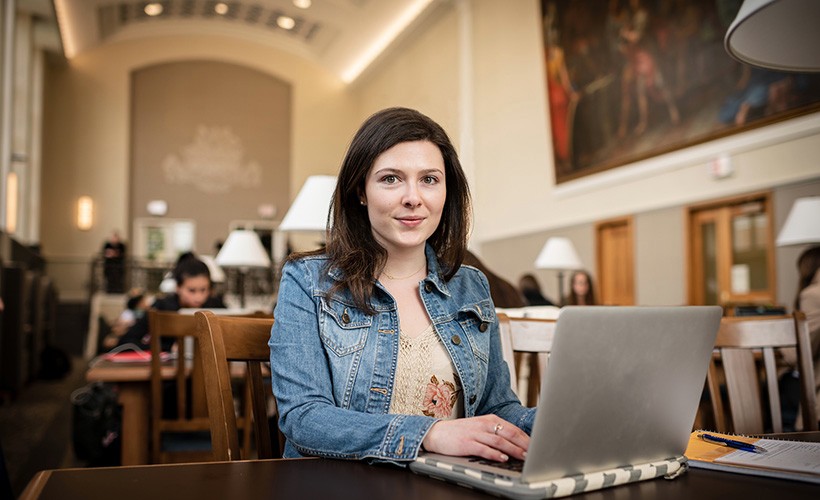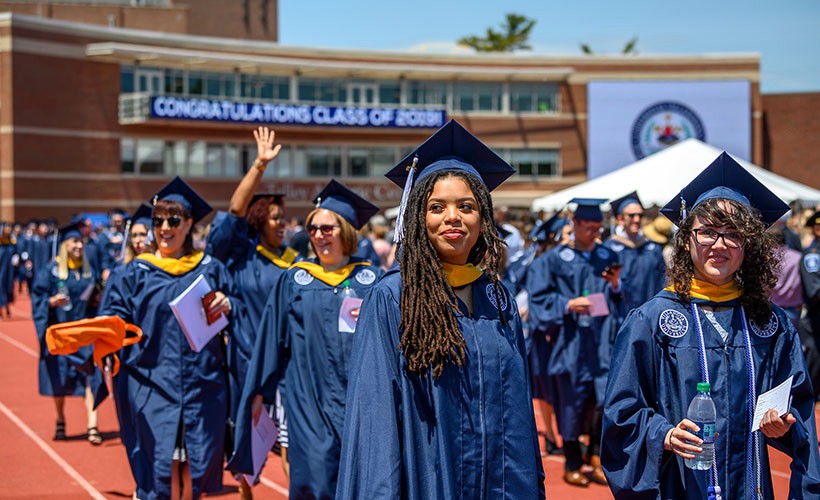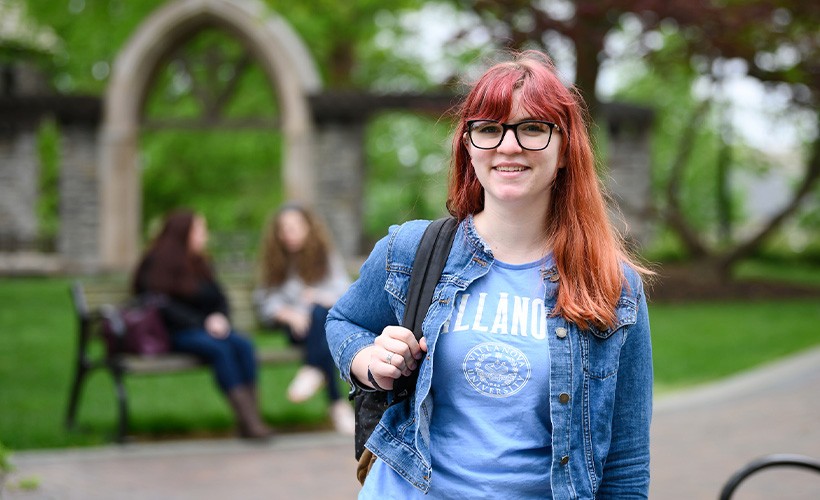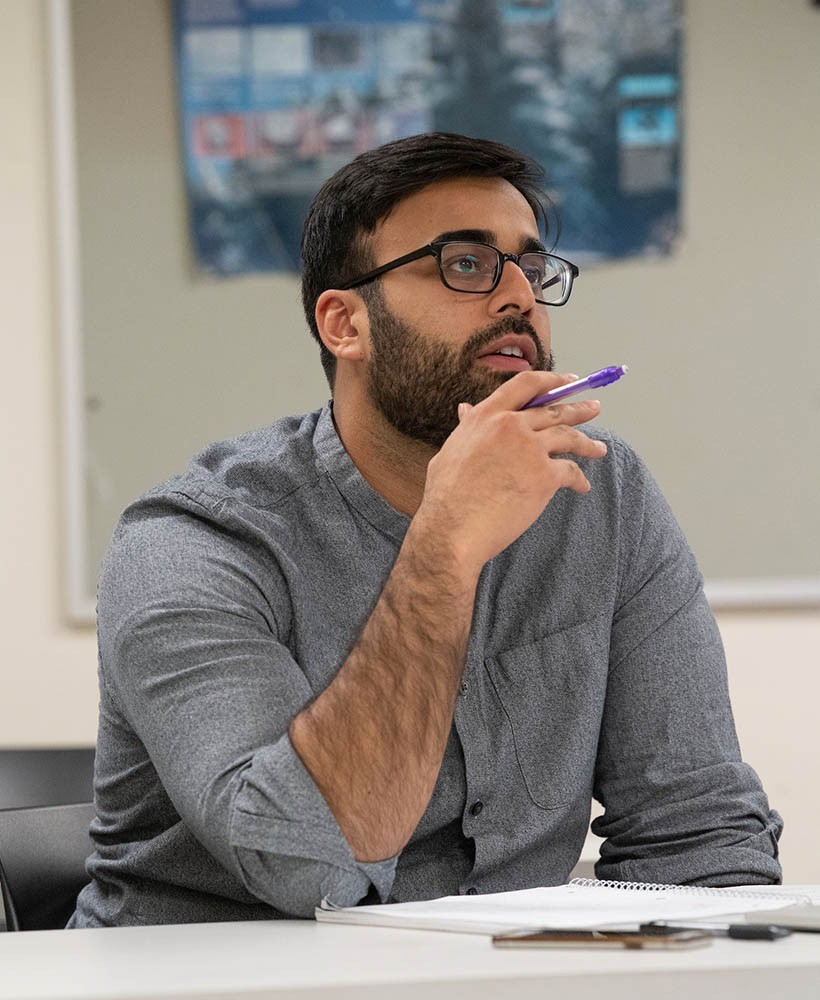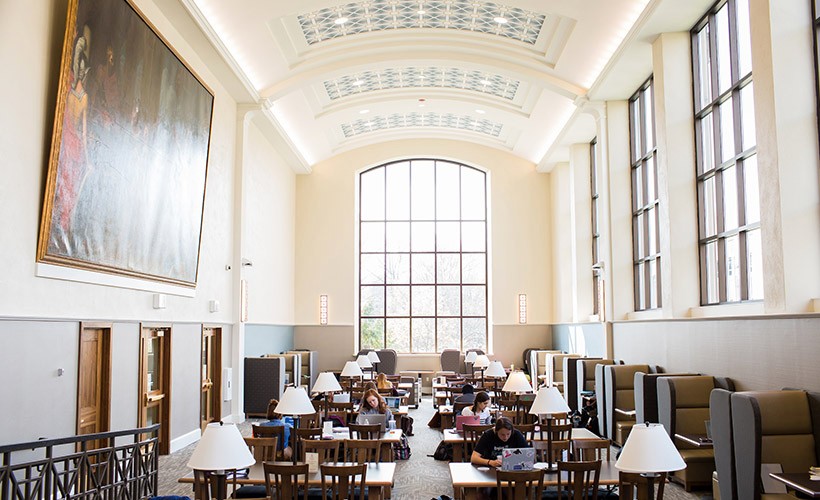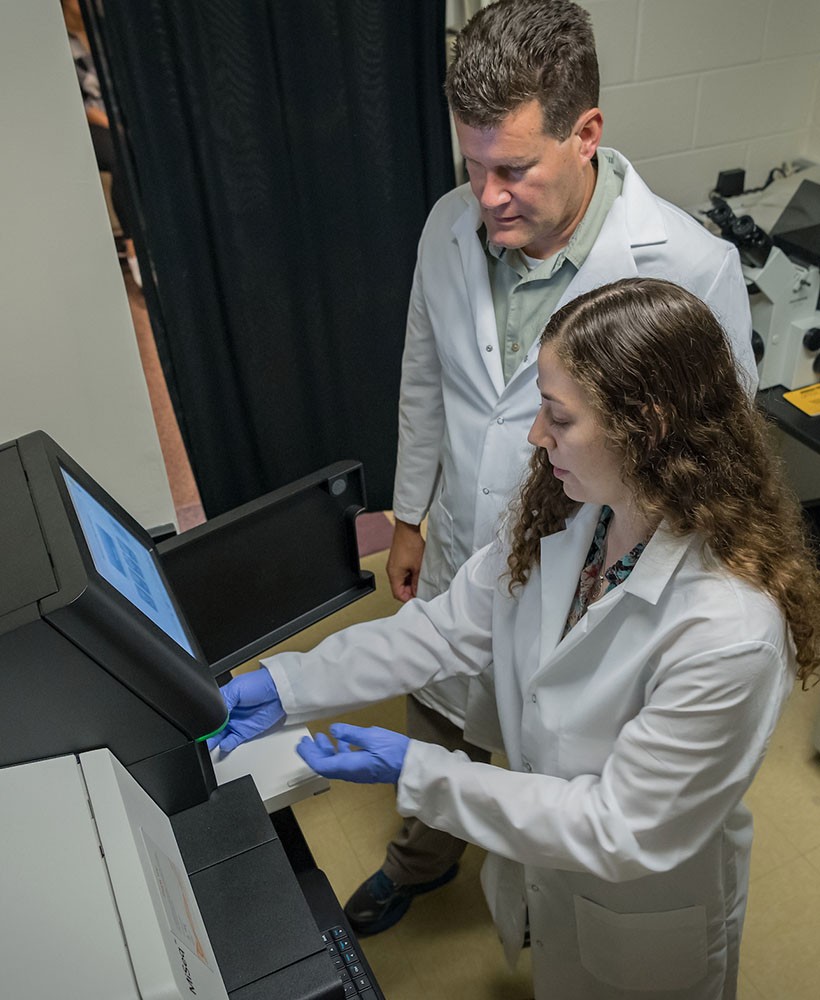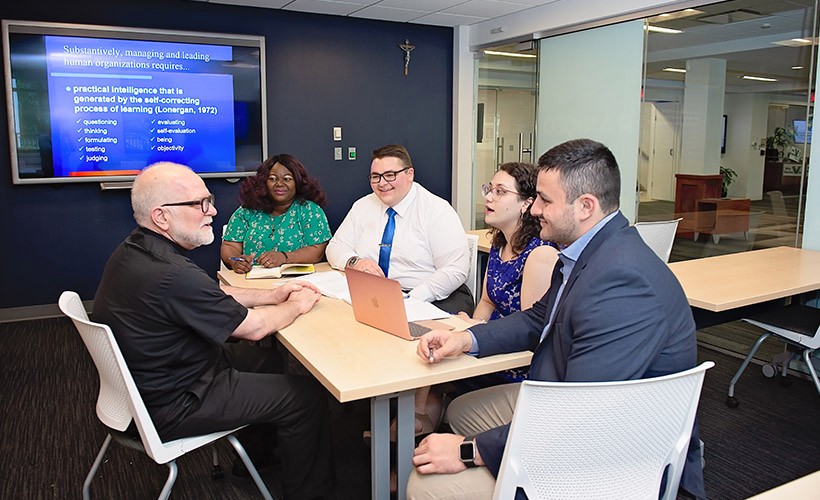DOCTORAL PROGRAM IN PHILOSOPHY
The Doctoral Program in Philosophy at Villanova University provides a collegial, collaborative atmosphere in which to study a rich variety of philosophical traditions, grow as a researcher, and pursue a range of careers in and outside of the academy.
Our program specializes in continental philosophy and the history of philosophy across multiple traditions. Other fields represented in the program include feminist philosophy, Africana philosophy, cognitive science, ethics, political philosophy, Buddhist philosophy and philosophy of religion. The internationally recognized faculty attract students from all over the world. In addition to mentoring students as researchers, we offer a carefully designed Teacher Training Program. In all its activities, the Department of Philosophy prioritizes diversity, equity and inclusion, and we are proud of our collaborative learning environment.
WHY VILLANOVA PHILOSOPHY?
Our doctoral program values diversity in philosophical inquiry and the importance of the inclusion of underrepresented groups and approaches in our discipline. In fact, the health of the profession of Philosophy depends on it. As a doctoral program, we play an important role in cultivating a diverse and inclusive philosophical community. Our goal is to recruit and sustain a diverse graduate student body and aid all students to develop as thinkers who practice philosophy with a commitment to these values of diversity and inclusiveness. In order to realize this goal, we will:
- Encourage a full range of applicants with diverse backgrounds, including those from “non-elite” undergraduate institutions.
- Strive for collecting and sharing data concerning the demographic makeup of graduate students, along with career outcomes such as time to degree and job placement.
- Strive for providing financial support, academic assistance, and advisement that reflects the diverse needs of a diverse population.
- Strive for a curriculum that incorporates and highlights the contributions of marginalized groups and approaches to the richness of philosophy.
- Continuously strive toward an environment of greater inclusion and respect through critical self-examination and collaborative community work, paying due attention not only to overt forms of prejudice or exclusion but also to its subtler manifestations.
Our program situates students at the cutting edge of current research in philosophy, exposing students to the contemporary methodologies and debates while providing training in the history of philosophy. Students are exposed to the most recent hermeneutic, historiographical and philosophic methodologies and debates regarding their research topics.
We are a pluralistic department that combines special strengths in continental philosophy and the history of philosophy, with important perspectives from the analytic tradition. We promote work that draws on the strengths of each of these theoretical orientations and is able to navigate easily between them.
Our program provides thorough training in the history of philosophy, which includes the careful consideration of classical texts in their original language. Far from collapsing the history of philosophy into contemporary modes of thinking, we seek to draw on current research in order to diligently come to terms with the immense historical distance that often separates us from the philosophic practices of the past.
Students study with internationally recognized faculty who have extensive experience and contacts abroad (most notably in France, Germany, Italy and Austria but also in Poland, Hungary, Australia, South Africa and Latin America). With the help of the Office of Graduate Studies in the College of Liberal Arts and Science, the Department supports students who want to participate in any of a number of summer research opportunities globally.
Finally, students receive departmental support to attend national and international conferences, and we regularly assist students in applying for funding and establishing contacts for longer periods of research abroad.
Developing as an educator is an integral part of graduate work in philosophy and a special strength of our department. Graduate students complete a carefully designed Teacher Training Program and are supported and encouraged as they develop as teachers. Graduate assistantships involve students in a progressive series of assignments, culminating in the assumption of full teaching responsibilities in the fifth year. The Villanova Institute for Teaching and Learning (VITAL) is a resource for graduate assistants; it offers workshops, consultations, and services such as course evaluation and class videotaping.
The department convenes a regular series of faculty-led workshops in order to prepare doctoral students for careers in philosophy. These are intended to provide the skills of professional practice essential for early-career philosophers as they navigate and advance within the field.
Common topics include academic planning, CV maintenance, journal submissions, conferencing, research methods, grant writing and job market preparation. Workshops are typically conducted with input from several faculty members in order to provide students with a breadth of perspectives, styles, tools and techniques.


